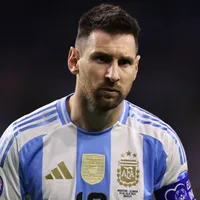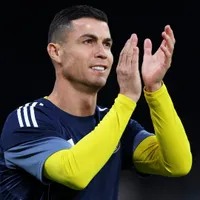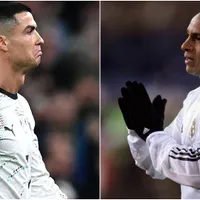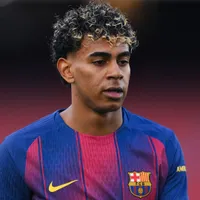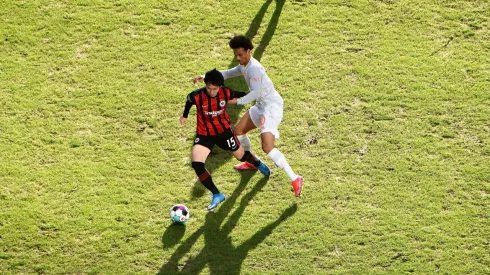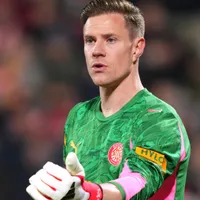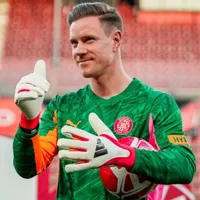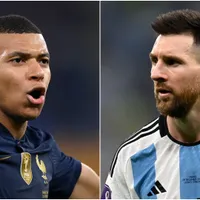Ever since globalization and football’s inextricable embrace in the 1990s, worldwide fans embraced the value of market language. The World Cup “shop window” showcases the best playing talent and the latest breakout stars. Scouts attend, worldwide TV audiences confirm demand and promising world-beaters are supplied to the highest bidders.
Germany and Japan have plenty to offer in that regard on Wednesday, Nov. 23 when they face each other. However, Japan’s team sheet could pull in more Bundesliga clubs than Germany.
Given a few unknowns, the two clubs could send out a total of 12 players from Bundesliga clubs.
Germany’s likely starters (and their respective club teams): Bayern; West Ham, Real Madrid, Dortmund, Leipzig; Man City, Bayern; Bayern, Bayern, Bayern, Chelsea
Japan’s likely starters: Strasbourg; Urawa Reds, Schalke, Arsenal, Gladbach; Stuttgart, Sporting; Freiburg, Frankfurt, Reims; Celtic
Managing expectations
For global soccer fans, the Champions League multi-millionaires on one side contrast with “names to learn” on the other. But, similarities still prevail. Both sides lack an established No. 9. Then, each nation is overstocked with attacking midfield talent. Finally, Japan and Germany are vulnerable to a mix of ageing legs and inexperience at the back at this World Cup.
No doubt, the players will entertain. Consequently, European sporting directors will respond with January transfers and contract improvements. Perhaps Daichi Kamada or Youssoufa Moukoko could climb the value chain through a bumper deal or a new employer.
But the real product on show at Khalifa International Stadium is the Bundesliga.
Germany, Japan put on Bundesliga display at World Cup
TV subscriptions keep the soccer world spinning. They elevate not just individual clubs and players. Rather, deals provide whole national industries – entire leagues, even – to competitive advantage. Bundesliga fans pay as much as anyone. At least, they do within Germany.
Premier League and Bundesliga deals for domestic audiences don’t differ much in value. But international audiences prefer the former, by far. For example, ESPN paid the Bundesliga $30 million per season for a six-year deal in 2021. On the other hand, NBC paid the Premier League $433 million per year for a six-year deal of its own.
The quest for profit
Germany’s footballing powers know this. The ongoing debate on the “moral economy” of 50+1 ownership rules reflects a concern with international success. Bundesliga teams cannot compete when benchmarked against the trophies and spending power of El Clasico and the Premier League.
The advent of the German 2022/23 season met with a collective yawn. The Bavarian exception – sporadic Champions League success paralleled by domestic dominance – to the Bundesliga’s waning clout is a “boring” hindrance: serial winners are bad for the brand.
The media narrative has echoes within the German football association. The DFB’ is attempting to drive revenues across the Atlantic through new sporting partnerships. This will see Munich and Frankfurt alternate as hosts to annual NFL games for the next four years. DFB CEO, Donata Hopfen, is open to multiple innovations to market the league.
As Hopfen remarked after Eintracht Frankfurt’s surprise Europa League win this year, nothing sells the Bundesliga like high-level success on the pitch. So, fingers crossed for an entertaining game against the Samurai Blue.
Plus, the appearance of Daichi Kamada, who played a key role in that Eintracht Frankfurt success of last season and the current campaign, can spread the international significance.
Expensive moral absolutes
German football has been outspoken on FIFA’s moral compromises in renting the global game to Qatar. From Leon Goretzka’s response to a Qatari diplomat, to documentaries on foreign laborers by former national players like Thomas Hitzlsperger, the Bundesliga’s stars have not held back.
But, FIFA’s concerns don’t align with the DFB’s. It seems Manuel Neuer’s insistence on wearing the now-threatened One Love armband could now cost him an automatic yellow card.
International audiences don’t all share the same values – and who knows if this makes any difference for the Bundesliga’s commercial growth. But whatever Manuel Neuer’s armband looks like against Japan, German soccer needs some entertainment.
A plethora of talent from the Bundesliga can build that praise as Germany battles Japan at the World Cup.
PHOTO: IMAGO / Hartenfelser

